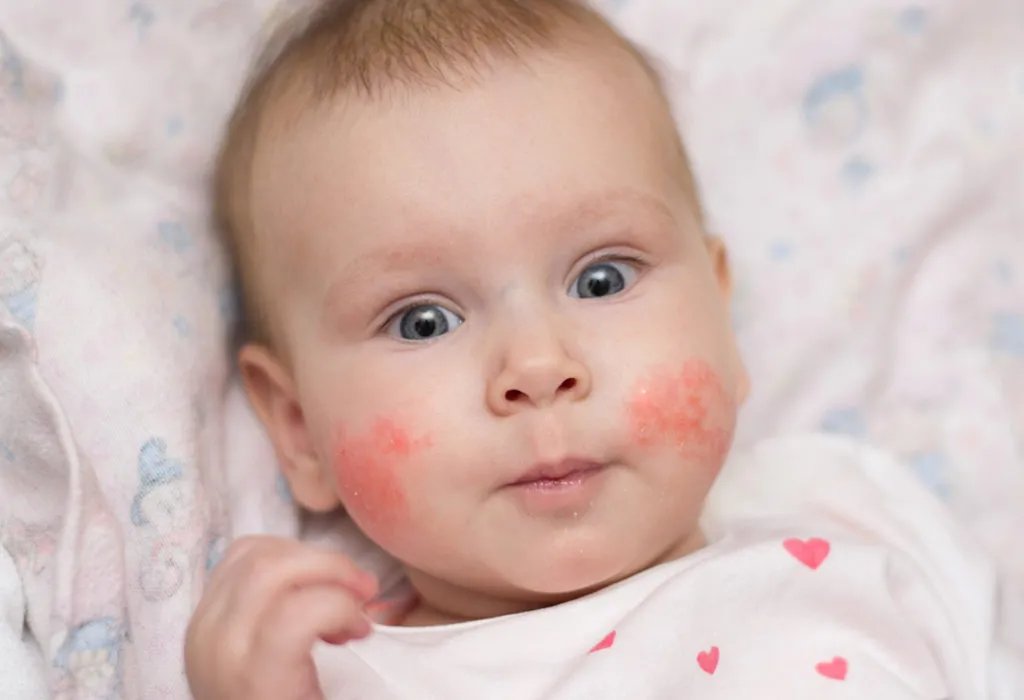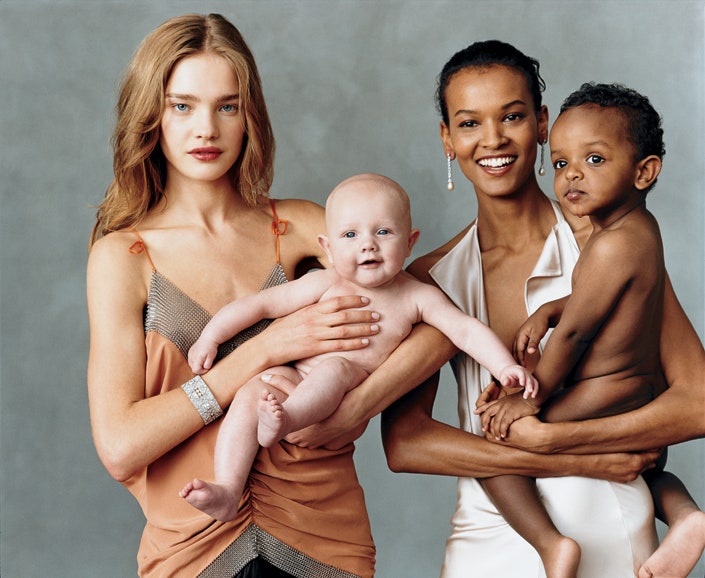Yes, babies can get sunburned. Their skin is more sensitive to the sun’s harmful rays.
Babies have delicate skin that burns easily under the sun. Even short exposure to sunlight can cause sunburn. Protecting your baby from the sun is crucial. Use protective clothing, hats, and baby-safe sunscreen. Keep them in the shade during peak sun hours.
Unprotected skin can lead to painful burns and long-term damage. Always check for signs of sunburn after outdoor activities. Redness, irritation, and discomfort are common symptoms. Early prevention can save your baby from unnecessary pain. Make sun safety a priority in your daily routine. Stay vigilant to keep your little one safe from harmful UV rays.
Sunburn In Babies
Babies have delicate skin. They can get sunburned quickly. Sunburn in babies can lead to serious health issues. Parents must take extra care to protect their little ones from the sun’s harmful rays.
Risks And Consequences
Babies are more vulnerable to sunburn than adults. Their skin is thinner and more sensitive. Sunburn can cause immediate pain and discomfort. It can also lead to long-term skin damage. Risks include:
- Painful red skin
- Blisters
- Dehydration
- Fever
- Increased risk of skin cancer later in life
Severe sunburn can require medical attention. In extreme cases, hospitalization may be necessary. Always take steps to prevent sunburn in babies.
Symptoms To Watch
It’s important to recognize the symptoms of sunburn in babies early. Common symptoms include:
- Redness or swelling of the skin
- Warm or hot skin to the touch
- Pain or tenderness
- Blisters
- Fussiness or crying
Severe symptoms may include:
- Fever or chills
- Nausea or vomiting
- Dizziness
- Headache
If you notice any of these symptoms, seek medical advice immediately. Early treatment can help reduce discomfort and prevent complications.

Credit: parenting.firstcry.com
Safe Sun Exposure
Babies have delicate skin that can easily get sunburned. Ensuring safe sun exposure is crucial for their protection. This section will guide you on how to keep your baby safe under the sun.
Ideal Times Outdoors
Choose the right times for outdoor activities to protect your baby. The sun’s rays are strongest between 10 AM and 4 PM. Try to avoid being outdoors during these hours. Instead, plan outdoor activities for early morning or late afternoon. This will reduce the risk of sunburn for your baby.
Protective Clothing
Dressing your baby in the right clothing can provide excellent sun protection. Opt for lightweight, long-sleeved shirts and pants. These will cover more skin and protect against harmful UV rays.
Consider using a wide-brimmed hat to protect your baby’s face, ears, and neck. Sunglasses with UV protection can also shield your baby’s eyes. Additionally, you can use a stroller with a sunshade or a parasol.
| Type of Clothing | Protection Level |
|---|---|
| Long-sleeved shirts and pants | High |
| Wide-brimmed hats | Medium |
| Sunglasses with UV protection | High |
Always check the clothing labels for UV protection ratings. Look for clothes with a UPF (Ultraviolet Protection Factor) of 30 or higher. This will ensure better protection for your baby’s sensitive skin.
Choosing Sunscreen
Babies’ skin is sensitive and can burn easily. Choosing the right sunscreen is crucial. It helps protect their delicate skin from harmful UV rays.
Best Ingredients
Look for sunscreens with zinc oxide or titanium dioxide. These ingredients are safe for babies. They provide broad-spectrum protection.
Avoid sunscreens with oxybenzone or retinyl palmitate. These can irritate babies’ skin. Choose products labeled fragrance-free and hypoallergenic.
Application Tips
- Apply sunscreen 30 minutes before going outside.
- Use a generous amount to cover all exposed skin.
- Reapply every two hours, or after swimming or sweating.
- Don’t forget to cover the ears, neck, and top of feet.
| Age | Recommendation |
|---|---|
| 0-6 months | Avoid direct sunlight. Use hats and shade. |
| 6+ months | Use baby-friendly sunscreen. Follow application tips. |

Credit: community.whattoexpect.com
Shade Solutions
Babies have delicate skin and can easily get sunburned. Protecting them from the sun is essential. One of the most effective ways to do this is by providing ample shade. Below are some practical shade solutions to keep your baby safe.
Effective Use Of Umbrellas
Using an umbrella is a simple and effective way to shield your baby from the sun. Beach umbrellas and stroller umbrellas can provide necessary shade. Here are some tips for effective use:
- Choose an umbrella with UV protection.
- Ensure the umbrella covers a large area.
- Secure the umbrella properly to avoid it tipping over.
Creating Shaded Areas
Creating shaded areas in your backyard or outdoor spaces is another great option. Consider the following methods:
- Install a canopy or sunshade sail over play areas.
- Plant trees that provide natural shade.
- Use portable pop-up tents for flexibility and convenience.
| Shade Solution | Benefits |
|---|---|
| Umbrellas | Portable and easy to use |
| Canopy | Permanent and provides large area coverage |
| Sunshade Sail | Stylish and effective |
| Pop-up Tents | Flexible and quick to set up |
Remember, providing shade is just one part of sun protection. Always use additional measures like sunscreen and protective clothing.
Hydration Importance
Babies have delicate skin which can get sunburned easily. Hydration is crucial when a baby gets sunburned. Dehydration can worsen the condition and lead to serious health issues.
Signs Of Dehydration
Recognizing the signs of dehydration is important. Here are common indicators:
- Dry mouth and tongue
- No tears when crying
- Fewer wet diapers
- Sunken eyes or cheeks
- Listlessness or irritability
Hydration Strategies
Keeping your baby hydrated is essential. Here are some effective hydration strategies:
- Breastfeeding: Offer the breast more often. Breast milk keeps babies hydrated.
- Formula feeding: If bottle-feeding, offer formula more frequently.
- Oral rehydration solutions: Consult your doctor. These solutions can help.
Hydration Tips For Parents
Here are some extra tips to ensure your baby stays hydrated:
| Tip | Details |
|---|---|
| Use a cool mist humidifier | Helps keep air moist and comfortable. |
| Avoid direct sunlight | Keep baby in the shade or indoors. |
| Dress baby in light clothing | Choose breathable fabrics to keep them cool. |

Credit: www.allthingsmamma.com
Emergency Measures
Babies have delicate skin, making them more vulnerable to sunburn. Taking the right emergency measures can help minimize damage. Below are crucial steps to follow if your baby gets sunburned.
Immediate Steps For Sunburn
Act quickly to reduce discomfort and prevent further damage. Here are the immediate steps to take:
- Move to Shade: Get your baby out of the sun immediately.
- Cool the Skin: Apply a cool, damp cloth to the sunburned area. Repeat as needed.
- Hydrate: Offer your baby fluids to prevent dehydration.
- Avoid Tight Clothing: Dress your baby in loose, soft clothing to avoid irritation.
- Moisturize: Apply a gentle, fragrance-free moisturizer to the affected area.
When To Seek Medical Help
Sometimes sunburn can be severe, requiring medical attention. Know the signs of serious sunburn:
- Blisters: If your baby develops blisters, consult a doctor.
- Fever: A fever over 100.4°F (38°C) needs medical care.
- Swelling: Severe swelling or redness needs a doctor’s evaluation.
- Unusual Behavior: If your baby is unusually fussy or lethargic, seek help.
| Symptom | Action |
|---|---|
| Blisters | Consult a doctor |
| Fever | Seek medical care |
| Swelling | Doctor’s evaluation |
| Unusual Behavior | Seek help |
Travel Precautions
Traveling with a baby requires extra care, especially concerning sun exposure. Babies have delicate skin that can easily get sunburned. Taking the right precautions ensures your baby’s safety and comfort. Here are some essential tips to keep your baby safe from the sun while traveling.
Packing Essentials
When packing for a trip with a baby, include sun protection items. Here’s a list of essentials:
- Wide-brimmed hat: Shields the baby’s face, neck, and ears.
- Lightweight, long-sleeved clothing: Protects the baby’s skin from direct sun.
- Baby-friendly sunscreen: Opt for SPF 30 or higher.
- Stroller with a sunshade: Provides shade during walks.
- UV-protection sunglasses: Safeguards the baby’s eyes.
- Portable sunshade: Useful for outdoor activities.
Sun Safety On The Go
Ensuring sun safety while traveling involves more than just packing essentials. Follow these tips to protect your baby:
- Seek shade: Always choose shaded areas for rest.
- Limit sun exposure: Avoid being outdoors between 10 AM and 4 PM.
- Apply sunscreen: Use baby-friendly sunscreen on exposed skin.
- Hydrate: Keep your baby hydrated with breast milk or formula.
- Monitor the baby: Watch for signs of sunburn or overheating.
Remember, protecting your baby from the sun is crucial. Follow these travel precautions to ensure a safe and enjoyable trip.
Educating Caregivers
Babies have sensitive skin that can burn easily under the sun. Educating caregivers is crucial to protect babies from harmful UV rays. Proper training and access to community resources can help caregivers prevent sunburns in babies.
Training And Awareness
Caregivers need training on how to protect babies from the sun. Awareness programs can teach them the importance of using sunscreen and protective clothing. A brief training session can cover these key points:
- Use broad-spectrum sunscreen with at least SPF 30.
- Apply sunscreen 30 minutes before going outside.
- Reapply sunscreen every two hours.
- Dress babies in lightweight, long-sleeved clothing.
- Use a wide-brimmed hat for extra protection.
Training should also include recognizing early signs of sunburn. Redness, warmth, and fussiness may indicate a baby has sunburn.
Community Resources
Community resources provide essential support for caregivers. Local health departments may offer free sunscreen samples and educational brochures. Libraries often host workshops on baby care, including sun safety. Caregivers can also join parent groups for shared tips and advice.
Here are some community resources that can help:
| Resource | Description |
|---|---|
| Local Health Departments | Offer free sunscreen samples and educational materials. |
| Libraries | Host workshops on baby care, including sun safety tips. |
| Parent Groups | Provide shared tips and support on sun protection. |
Utilizing these resources can enhance caregivers’ knowledge and skills. This ensures babies stay safe from the harmful effects of the sun.
Frequently Asked Questions
What Happens If A Baby Gets A Little Sunburn?
A baby with mild sunburn may experience redness, pain, and slight swelling. Cool compresses and hydration help soothe.
How Fast Can Babies Get Sunburn?
Babies can get sunburn in just 15 minutes. Their skin is extremely sensitive to UV rays. Always use protective clothing and sunscreen.
Can A Baby Get Sunburn In The Shade?
Yes, a baby can get sunburn in the shade. UV rays can reflect off surfaces like water, sand, and concrete. Use protective clothing and sunscreen.
At What Age Can Babies Be Exposed To The Sun?
Babies can be exposed to the sun after 6 months. Use sunscreen and protective clothing for safety. Limit exposure to 10-15 minutes.
Can Babies Get Sunburned Easily?
Yes, babies have sensitive skin that can burn quickly. It’s essential to protect them from direct sunlight.
Conclusion
Protecting babies from sunburn is crucial. Use sunscreen, hats, and shade to keep them safe. Early prevention ensures healthy skin. Always monitor sun exposure and reapply sunscreen regularly. Prioritize sun safety to avoid sunburn and long-term skin damage. A little caution goes a long way in protecting your baby’s delicate skin.

